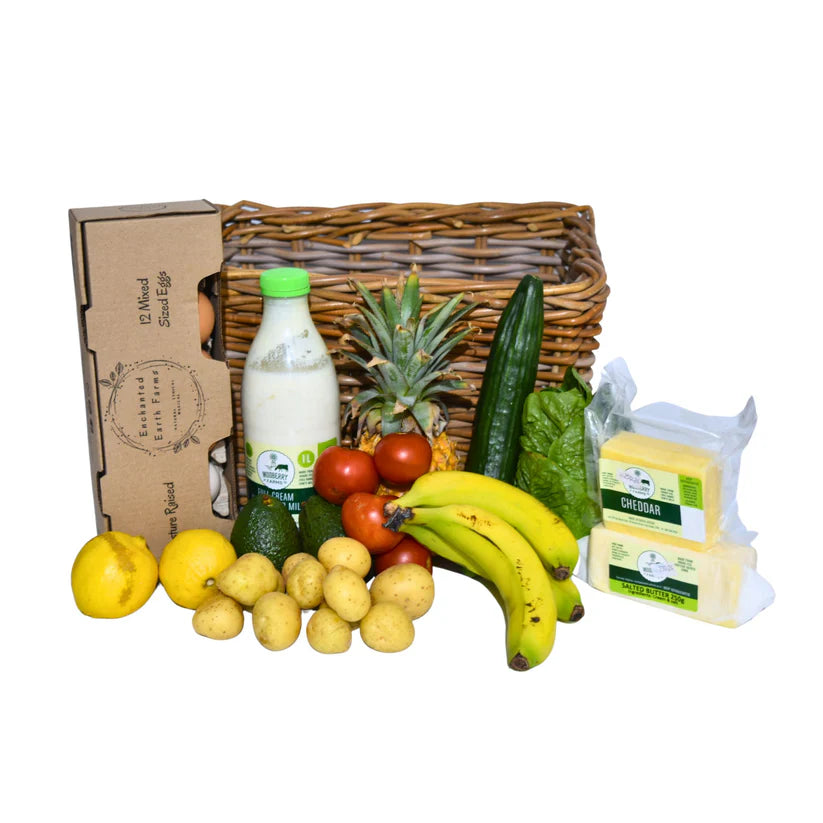- Choosing seasonal and local food builds direct relationships between consumers and farmers, fostering trust and solidarity through interactions at farmers' markets and CSA programs.
- Supporting local farmers stimulates local economies, creating jobs and preserving agricultural traditions, which strengthens both rural and urban communities.
- Opting for seasonal and local food reduces carbon emissions from transportation, promotes sustainable farming practices, and conserves natural resources, contributing to a more eco-friendly food system.
Convenience often takes precedence over quality and sustainability, the movement towards seasonal and locally sourced food stands as a beacon of mindful eating. Choosing to align our diets with the rhythms of nature and support local farmers not only benefits our health and taste buds but also has far-reaching implications for the environment and our communities. In this article, we delve into the myriad reasons why embracing seasonal and locally sourced food is not just a trend but a conscious choice that fosters a healthier, more sustainable food system for all. Join us as we explore the virtues of eating with the seasons and supporting our local food producers.
Exploring the Benefits of Eating with the Seasons
Eating with the seasons is a practice deeply rooted in tradition, yet its benefits extend far beyond culinary enjoyment. Embracing seasonal eating means consuming foods that are harvested at their peak ripeness and flavor, resulting in produce that is fresher, tastier, and more nutritious. By aligning our diets with the natural cycles of the seasons, we not only savor the vibrant flavors of each season's bounty but also reap a host of health benefits.

Shop Organic Olive Oil at Orchard Food
Seasonal produce is inherently richer in essential nutrients, as it is allowed to ripen fully on the vine or tree before being harvested. Fruits and vegetables that ripen naturally tend to have higher levels of vitamins, minerals, and antioxidants compared to their off-season counterparts, which are often picked prematurely and transported long distances. Incorporating a variety of seasonal produce into our diets provides a diverse array of nutrients that support overall health and well-being.
Furthermore, eating with the seasons encourages a deeper connection to the land and the natural world. By paying attention to the changing seasons and the foods that accompany them, we develop a greater appreciation for the cycles of nature and the interconnections of all living things. Seasonal eating also fosters a sense of gratitude for the abundance provided by the earth and promotes mindfulness in our food choices, encouraging us to savor and savor each bite. Overall, embracing seasonal eating not only benefits our health but also deepens our connection to the world around us, fostering a more sustainable and harmonious relationship with the planet.
Why Locally Sourced Food Matters
Opting for locally sourced food is a conscious decision that carries significant benefits for both communities and the environment. By supporting local farmers and food producers, consumers contribute to the vitality of local economies, creating job opportunities and fostering economic resilience. Additionally, purchasing locally sourced food reduces the need for long-distance transportation, minimizing energy consumption and greenhouse gas emissions associated with food miles.
Furthermore, choosing locally sourced food promotes sustainable farming practices and helps preserve agricultural diversity and rural landscapes. By sourcing food from nearby farms, consumers support farmers who employ environmentally friendly methods such as crop rotation, soil conservation, and water management. This fosters biodiversity, improves soil health, and enhances ecosystem resilience, contributing to a more sustainable and resilient food system.
In essence, embracing locally sourced food is about more than just nourishing our bodies; it's about nourishing our communities, supporting local economies, and stewarding the land for future generations. By prioritizing locally sourced food, consumers can enjoy fresher, tastier, and more nutritious fare while contributing to the creation of a more sustainable, equitable, and resilient food system for all.
How Seasonal and Local Foods Offer Superior Flavor and Quality
Seasonal and local foods are prized not only for their environmental and economic benefits but also for their unmatched flavor and quality. When fruits and vegetables are allowed to ripen fully on the vine or tree and harvested at their peak freshness, they develop a depth of flavor and sweetness that simply cannot be replicated by their off-season counterparts. Likewise, locally sourced meats, dairy products, and artisanal goods often boast superior taste and texture, reflecting the care and craftsmanship of local producers.
The freshness of seasonal and local foods is a key factor in their exceptional flavor and quality. Unlike produce that is harvested prematurely and transported long distances, seasonal and local foods are picked at their peak ripeness and delivered to consumers shortly thereafter, ensuring maximum freshness and flavor. This freshness is evident in the vibrant colors, crisp textures, and intense aromas of seasonal fruits and vegetables, as well as the rich, creamy goodness of locally sourced dairy products and the savory, succulent taste of locally raised meats.

Shop Organic Brown Shimeji Mushrooms at Orchard Food
Moreover, the connection between consumers and local producers further enhances the flavor and quality of seasonal and local foods. When consumers purchase directly from farmers at farmers' markets or through community-supported agriculture (CSA) programs, they have the opportunity to engage with the people who grow their food, ask questions about farming practices, and learn about the seasonality of different crops. This direct relationship fosters trust and transparency in the food system and allows consumers to make more informed choices about the foods they eat, resulting in a deeper appreciation for the flavor, quality, and nutritional value of seasonal and local foods.
The Sustainability Benefits of Choosing Seasonal and Local Produce
Opting for seasonal and local produce not only enhances flavor and supports local economies but also offers significant sustainability benefits that contribute to a healthier planet. By choosing fruits and vegetables that are in season and grown locally, consumers help reduce the environmental impact of their food choices in several key ways.
Sourcing produce locally minimizes the carbon footprint associated with transportation, as seasonal and local fruits and vegetables require shorter distances to reach consumers. This reduction in food miles helps mitigate climate change and promotes a more sustainable and eco-friendly food system. Additionally, supporting local farmers who employ environmentally friendly farming methods such as crop rotation and integrated pest management helps protect soil health, preserve biodiversity, and minimize pollution, contributing to the long-term sustainability of agricultural landscapes.
Furthermore, opting for seasonal and local produce fosters a deeper connection to the land and promotes awareness of the seasonality of food. By aligning their diets with the natural rhythms of the earth, consumers embrace the diversity and abundance of seasonal produce while gaining a greater appreciation for the cycles of agriculture. This connection to the land inspires consumers to make more conscious and sustainable food choices, benefiting both people and the planet in the process.
Building Relationships with Farmers through Seasonal and Local Food Choices
Choosing seasonal and local food isn't just about what we eat; it's an opportunity to forge meaningful connections with the farmers who grow our food. By opting for produce, meats, and dairy from local sources, consumers engage in a direct exchange that fosters trust, transparency, and community connection.
Visiting farmers' markets, farm stands, and CSA programs allows consumers to interact directly with farmers, learning about farming practices, crop seasonality, and the challenges of agricultural life. These face-to-face interactions cultivate a deeper appreciation for the dedication and hard work involved in producing the food we enjoy.
Supporting local farmers through seasonal and local food choices not only preserves agricultural heritage but also strengthens community bonds. By investing in family farms and protecting farmland, consumers contribute to the resilience of local food systems, fostering a sense of solidarity and mutual respect between farmers and their communities.
Choosing seasonal and local food isn't just about dietary preferences; it's a conscious decision that fosters connections, supports local economies, and promotes sustainable agriculture. By opting for produce, meats, and dairy from local sources, consumers engage in a direct exchange that fosters trust, transparency, and community connection. Through visits to farmers' markets, farm stands, and CSA programs, consumers can interact directly with farmers, gaining insight into farming practices and crop seasonality while developing a deeper appreciation for the dedication and hard work involved in producing the food we enjoy. Supporting local farmers through seasonal and local food choices not only preserves agricultural heritage but also strengthens community bonds. By investing in family farms and protecting farmland, consumers contribute to the resilience of local food systems, fostering a sense of solidarity and mutual respect between farmers and their communities. Ultimately, embracing seasonal and local food choices allows consumers to enjoy the benefits of a more sustainable, equitable, and resilient food system while supporting the health and vitality of their communities and the planet as a whole.










